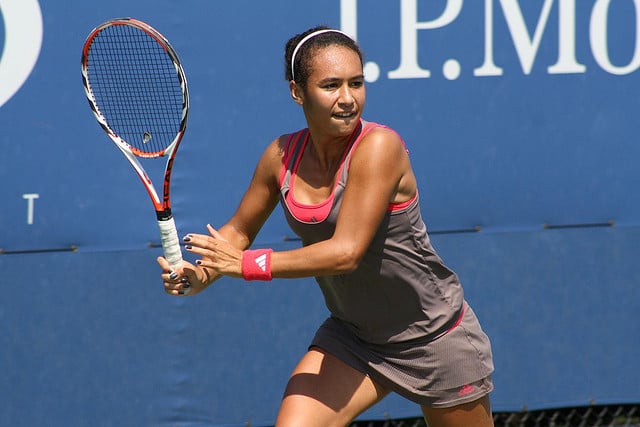I’d like to begin this post by being very clear: I am not a parent. Therefore, I cannot fully imagine what it might feel like to know your child is struggling with something -- with something you can resolve -- but resisting the impulse to come to the rescue. I am, however, an Executive Function coach and classroom instructor who has seen countless students struggle with a reading or writing assignment, meaning I know what it feels like to hold my tongue when all I want to do is explain what a quote means or give them an idea to write about. Despite how difficult that can sometimes be, I also know there are enormous benefits to holding back. While there are critical moments when parents need to step in to advocate for their child, oftentimes the question we need to consider is this: When should I NOT advocate for my child? The following story about one of the college students I coach might help us begin to answer that:
A few weeks back during a coaching session, one of my students reflected upon her preparedness for university-level demands:

“I’ve been playing tennis forever, and that involved a lot of sports camps, private lessons, practices and matches. But I never really worried about that stuff because my parents always told me where I had to be, and when, and often they were the ones who took me there. I just showed up and played. In high school my teachers always knew if I had an away match and, if I had to leave school early to travel, they just gave my homework to my mom. It was awesome.”
This does sound awesome: while she had a busy and demanding sports schedule, her parents made it possible for her to be everywhere she needed to be, and they did all the gathering of missed work and communicating with teachers that had to be done. If I were a parent, I can imagine myself wanting to do the very same so that my daughter could be successful both on the court and in the classroom.
Self-Advocacy is "Expected" in College
“But my college teachers are different than my high school ones,” she went on to explain. “They expect you to tell them in advance when you’ll be missing class for a match. They expect you to contact them to find out about the work you missed. They expect you to already know how to do all of these things, but I’ve never had to do this stuff before.”
As I listened to my student’s frustration, I realized that her parents -- who are incredibly lovely people -- unknowingly created a situation where she didn’t need to learn self-advocacy strategies for herself. For many parents, figuring out when to step in to support their child and when to step aside to allow self-advocacy, accountability and independence to develop can be a tough choice to make.
When is it Time for Parents to Step Aside?
It seems to me that answering this question comes down to answering another question: What is the priority?
When I pose this to parents, the most common response I receive is “to avoid failure.” And the things they’d like their child to avoid range from relatively small-scale items (flunking a quiz) to larger concerns (flunking 8th grade).
If your reason for stepping in to advocate for your son or daughter is to avoid failure, it’s a good one. As a teacher, I can totally get behind this idea: wanting my students to fail seems totally ludicrous. But it’s not the only priority to consider. When I ask parents if they hope their child becomes responsible, accountable and independent, they give me a resounding “of course” as if I’ve asked the most obvious question in the world. And, perhaps I have. If you’d like your son or daughter to become more responsible, accountable and independent, sometimes experiencing failure -- not avoiding it -- can help.
An Example of How Parents Can Help Students Learn to Self-Advocate
Let’s consider my tennis star again: imagine that, come 11th grade, mom and dad sit her down and explain that this year she needs to take more ownership of her schoolwork and her schedule. They give her some insight into the behind-the-scenes work they’ve done to make life manageable for her. They let her in on their strategies and approaches. They convey to her that they’ll support her development of self-advocacy skills so she can figure out what she needs, and from whom, and how to go about getting it so she’ll be ready to do that when she’s off to college in a few years.
Now imagine that after this conversation, she’s three weeks into the tennis season and an away match is coming up. While she leaves school early to get there, her science class is reviewing chapter 8 before their big unit test. When she arrives to science class the next day, she sits down to take the unit test and oh-my-gosh there’s a bunch of questions that feel foreign to her. She’s nearly in tears when she gets home and shares the news with her parents.
Possibly, she’s failed her unit test. Ouch. But even so, there are many more unit tests ahead that can balance out that grade. More importantly, though, she’s learned the cost of not communicating with her teacher in advance -- a key lesson to learn now so she’ll be prepared for college. Perhaps when the next away match comes up, she’ll remember the cost of bounding out of school before getting things in order. Perhaps she’ll check in with Mr. Dalton to gather the materials she needs. Perhaps she’ll even realize how easy it is to tell him she’s headed to her match and to get the study guide she needs. Or, perhaps she turns an essay in late and misses a lab and nearly fails a pop-quiz before before she begins making a turnaround. Despite the accumulation of small failures she may have, the benefits of mom and dad stepping aside will drastically outweigh the cost. The moment when failure teaches her to advocate for what she needs, and to be accountable for what she does and does not do, the more prepared she will be to face the university-level demands when she’s miles and miles from home.
Is your child able to advocate for himself or herself? Click below to download our free Student Self-Advocacy Checklist.
Photo credit: nickbollettieri via flickr. Depicted is Heather Watson, playing in the 2009 Junior US Open.

Brittany Wadbrook is a college instructor, certified writing tutor, and senior executive function coach at Beyond BookSmart. She began her career in education at Quinnipiac University earning a bachelor of Arts in English and Masters degree in Secondary Education. While at Quinnipiac, she became a certified Master Level Writing Tutor by the College Reading and Learning Association and spent three years working for the University's Learning Center. Feeling motivated to expand her pedagogical skill set, Brittany pursued a second Masters degree in Composition and Rhetoric at the University of Massachusetts Boston. After graduating, she became a full-time lecturer at UMass where she currently teaches first-year composition to a diverse classroom culture including English Language Learners and nontraditional students from a variety of academic backgrounds. Brittany's experience with adult learners, diverse cultures, and a range of learning abilities has enabled her to become a flexible educator who is sensitive to individual learning needs and intrinsically invested in their educational success.

